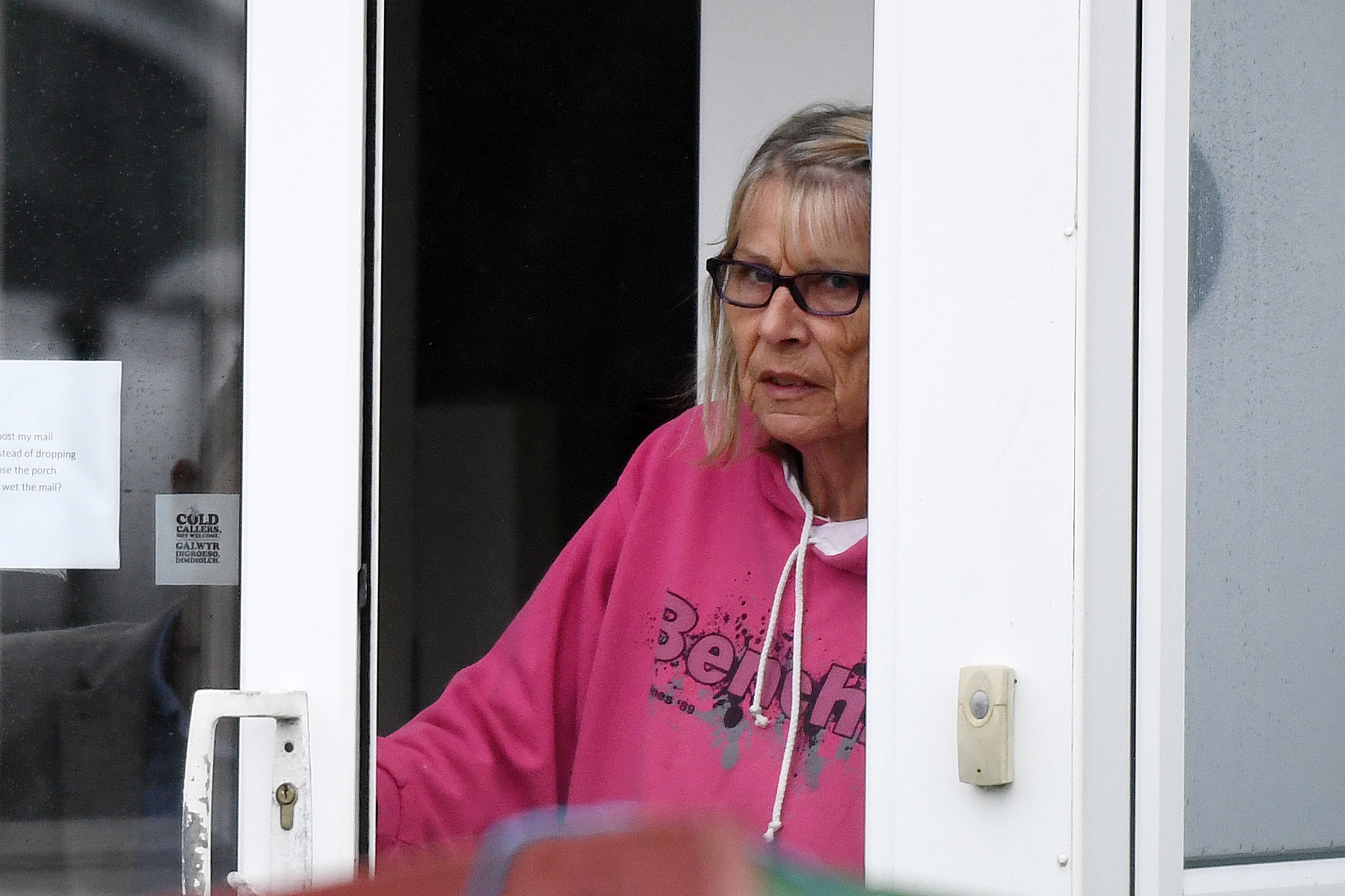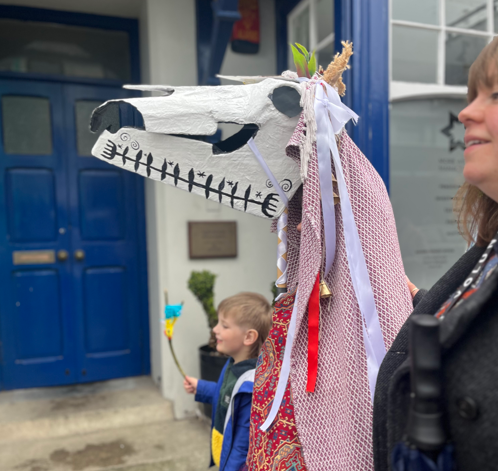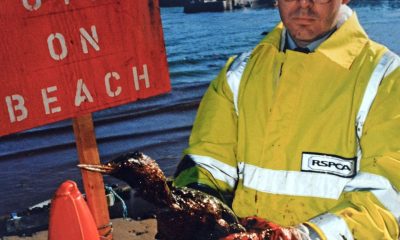News
Pembroke Dock: Former nurse jailed for 18 months

A FORMER nurse from Pembroke Dock who lied to an inquest about the death of a vulnerable patient has been jailed for 18 months.
Lorraine Stevens, aged 62, told the hearing she had prepared a risk assessment on John Shelley, a mentally ill man prone to drinking harmful substances.
But she fabricated the assessment only after he drank a bottle of Fairy Liquid and died the following day.
Stevens admitted perjury.
Swansea Crown Court heard how Mr Shelley, aged 68, had been brain damaged at birth and needed constant care.
Mr Shelley’s brother Martin was told he was about to be transferred to 10 Church Close, in Begelly near Tenby, west Wales, a four bedroom bungalow for mentally ill patients.
Mr Martin Shelley, an engineer familiar with risk assessments, visited the premises and became alarmed at the lack of internal locks.
In particular, he didn’t want his brother having unsupervised access to the kitchen where he might find something harmful to drink.
Stevens, of Kitchener Close, Pembroke Dock, should have completed a risk assessment but didn’t.
Catherine Richards, prosecuting, told Swansea Crown Court that on July 13, 2013, a kitchen window had been left open on the hottest day of the year and Mr Shelley reached in and drank from the Fairy Liquid bottle.
Stevens, the team leader and the only qualified nurse on duty, told staff to give him plenty of water to drink and, later, to give him ginger biscuits and milk.
Stevens left work early. The staff who took over became concerned and he was taken to Withybush Hospital in Haverfordwest.
But his condition deteriorated and he died the following day through multiple organ failure.
Martin Shelley told the authorities he had not seen a risk assessment and Stevens suddenly produced one, assuring him that staff would have been shown it.
The report was produced at an inquest into Mr Shelley’s death held in 2014. Stevens told the coroner the four page report, which addressed Mr Shelley’s access to the kitchen, had been prepared on April 14, 2013.
Mr Shelley became suspicious because it had been signed only by Stevens herself when all staff should have signed to confirm they had read and understood it.
Police became involved and seized a computer from 10 Church Close which showed the report had been compiled on July 18, 2013, four days after the fatality.
After her arrest, Stevens maintained the report was genuine and dated accurately.
When she was told later about the computer findings she declined to answer any more questions.
Stevens’ barrister, Jon Tarrant, said she would live forever with the guilt and remorse she felt over Mr Shelley’s death, but described it as a tragedy without intention.
It was difficult to know, he added, if a proper risk assessment would have avoided the fatality.
Mr Martin Shelley was allowed to address the court and said he believed his brother might not have died if all staff had understood how important it was to keep him away from harmful liquid substances.
The bungalow, he said, housed four mentally ill patients but had not been purposely built for someone with his brother’s difficulties.
“I was assured that a risk assessment would be carried out before he moved in, particularly in relation to the lack of internal locks.
“He was let down in his hour of need.
“His death, pain, suffering and distress could have been avoided,” he added.
The court heard that Stevens had been struck off as a nurse.
Judge Keith Thomas told Stevens she had fabricated the report and then lied about it to avoid criticism.
“You did this to cover up the fact you had not made proper provision for the challenges posed by Mr Shelley.
“I am not dealing with you for causing the death but for you did cause additional distress and anxiety to his family.
“You were deceitful and your lies were persistent,” he added.
News
Welsh MS attacks ‘Nation of Sanctuary’ policy after asylum seeker jailed for child rape

Davies attacks ‘Nation of Sanctuary’ policy after asylum seeker jailed for child rape
A SENIOR Welsh Conservative has called for the Welsh Government’s “Nation of Sanctuary” policy to be scrapped after an Afghan asylum seeker was convicted of abducting and raping a 12-year-old girl.
Andrew RT Davies, leader of the Welsh Conservatives in the Senedd, said the case highlighted what he described as the “dangers” of the current approach to asylum and migration in Wales.
Ahmad Mulakhil, who arrived in the UK by small boat from France in March 2025, was convicted of the attack just four months later.
The case, reported nationally this week, has prompted renewed political debate over the Welsh Government’s stance on supporting asylum seekers and refugees.
Mr Davies said: “This appalling case demonstrates the dangers of importing violent criminals into Britain.
“Plaid Cymru and Labour’s decision to make Wales a Nation of Sanctuary for asylum seekers is a pull factor, encouraging more people to enter our country illegally.
“I reiterate my calls for this dangerous policy to be scrapped.”
The comments directly target the Welsh Government’s “Nation of Sanctuary” plan, launched in 2019, which aims to make Wales a welcoming place for refugees and people seeking asylum, with support for housing, education and integration.
The Welsh Government has previously defended the policy, saying it reflects “Welsh values of compassion and fairness,” and stressing that responsibility for border security lies with the UK Government.
Meanwhile, the UK Government has introduced tougher measures aimed at reducing small-boat crossings and speeding up removals of those with no right to remain.
The latest case is likely to intensify scrutiny of how asylum accommodation and safeguarding are managed across Wales.
For many residents, the debate now centres on how to balance humanitarian support with public safety and confidence in the system.
As Mr Davies’ intervention shows, the political argument over Wales’s role as a “Nation of Sanctuary” is far from over.
Meanwhile the official figures show that asylum seekers commit less crime than the general population.
Health
Health Board to decide future of nine key services at two-day meeting

DECISIONS on the future of nine frontline hospital services across west Wales will be made later this month when Hywel Dda University Health Board holds a special two-day Board meeting.
The Extraordinary Board will meet on Wednesday (Feb 18) and Thursday (Feb 19) to determine the next steps for critical care, dermatology, emergency general surgery, endoscopy, ophthalmology, orthopaedics, stroke, radiology and urology services.
Health chiefs say the proposed changes are aimed at tackling staffing shortages, improving clinical standards and cutting waiting times for diagnosis and treatment.
More than 4,000 people responded to a public consultation on the plans. Feedback was gathered through questionnaires, public meetings, staff sessions and discussions with stakeholder groups.
An independent consultation report compiled by Opinion Research Services will form part of the evidence considered by Board members. It will sit alongside updated data on workforce pressures, estate condition, clinical standards and how services link together across hospitals.
All documents to be considered by the Board have now been published online ahead of the meeting.
Alternative ideas assessed
During the consultation, communities also submitted 190 alternative proposals.
Each idea was tested against “hurdle criteria” to check whether it was safe, practical and capable of delivery before being taken forward.
Of those, 22 met the criteria and have been developed into full options. These will be considered alongside the Health Board’s original proposals.
Board members will assess whether each option is clinically sustainable, deliverable, accessible to patients, aligned with the Health Board’s long-term strategy and financially viable. They will also decide whether further engagement or evidence is needed before any final changes are introduced.
Some changes, if approved, could be phased in over time.
Dr Neil Wooding, Chair of the Health Board, said: “At our meeting next week, the Board will carefully consider the consultation feedback alongside the latest clinical evidence, workforce insights, updated impact assessments and the alternative options that were put forward during the consultation.
“Our responsibility is to consider the full range of evidence and ensure we make decisions that ensure that our services are sustainable for the future. No decisions have been made ahead of the Board. We are committed to a thorough and transparent process, ensuring each option and alternative options are considered in the round, and focused on improving services for the people who rely on them.”
Entertainment
Joyful half-term celebration of Welsh culture comes to Narberth

FAMILIES across Pembrokeshire are being invited to enjoy an afternoon of music, stories and traditional festivities when a colourful half-term celebration of Welsh culture comes to Narberth next week.
The community-focused event, taking place on Wednesday (Feb 18), promises a relaxed and welcoming day out, with hands-on workshops, live entertainment and plenty of opportunities for people to drop in and take part at their own pace.
Organisers say the aim is to create a warm, inclusive atmosphere where all ages can explore Welsh heritage through creativity, craft and food.

At the heart of the programme is the Dewi Sant Promenade Parade, a lively procession through the town featuring traditional music and some of Wales’ best-loved folklore characters, including a dragon and the Mari Lwyd. The parade will be accompanied by music from Reel Rebels, encouraging families to join the celebration as it winds through the streets.
Elsewhere, adults can try their hand at a calming weaving workshop with artist Daisy Buckle at SPAN Arts, while younger visitors can enjoy storytelling and craft activities led by Hedydd Hughes and Luci Saunders at the Narberth Scout Hut.
The day will finish with a traditional family Twmpath, complete with live music, dancing, cawl and Welsh cakes, offering a sociable close to the festivities and a taste of classic Welsh hospitality.
Organisers say the event has been designed to be accessible and affordable, welcoming both local residents and visitors looking for a low-cost half-term activity.
Event highlights include:
• Adults’ weaving workshop with Daisy Buckle at SPAN Arts
• Children’s storytelling and craft session at Narberth Scout Hut
• Dewi Sant promenade parade with music, dragon and Mari Lwyd
• Family Twmpath with cawl and Welsh cakes
Event details:
Date: Wednesday (Feb 18)
Locations: Narberth Scout Hut and SPAN Arts, Narberth
Time: 1:30pm to 5:00pm
Pricing: Pay what you can, from £3
Booking: span-arts.org.uk
Accessibility enquiries: [email protected]
-

 Health6 days ago
Health6 days agoHealth board targets rise in steroid and gym drug use across west Wales
-

 Crime7 days ago
Crime7 days agoSex offender jailed after living off grid in Pembrokeshire and refusing to register
-

 Crime6 days ago
Crime6 days agoTeacher injured and teenager arrested for attempted murder at Milford Haven School
-

 Business2 days ago
Business2 days agoComputer Solutions Wales under fire from customers
-

 Business5 days ago
Business5 days agoSix-figure negligence victory leaves retired builder trapped in divorce limbo
-

 News6 days ago
News6 days agoReform appoints Dan Thomas to lead party in Wales
-

 Sport6 days ago
Sport6 days agoWales name squad for Six Nations opener against England
-

 Business4 days ago
Business4 days agoMinimum alcohol price to rise by 30 per cent as retailers warn of border impact







































